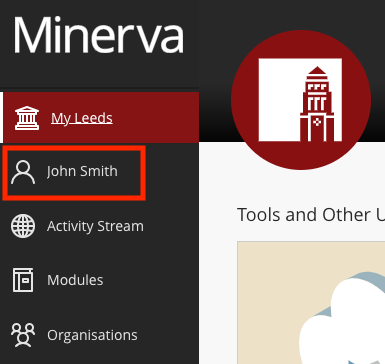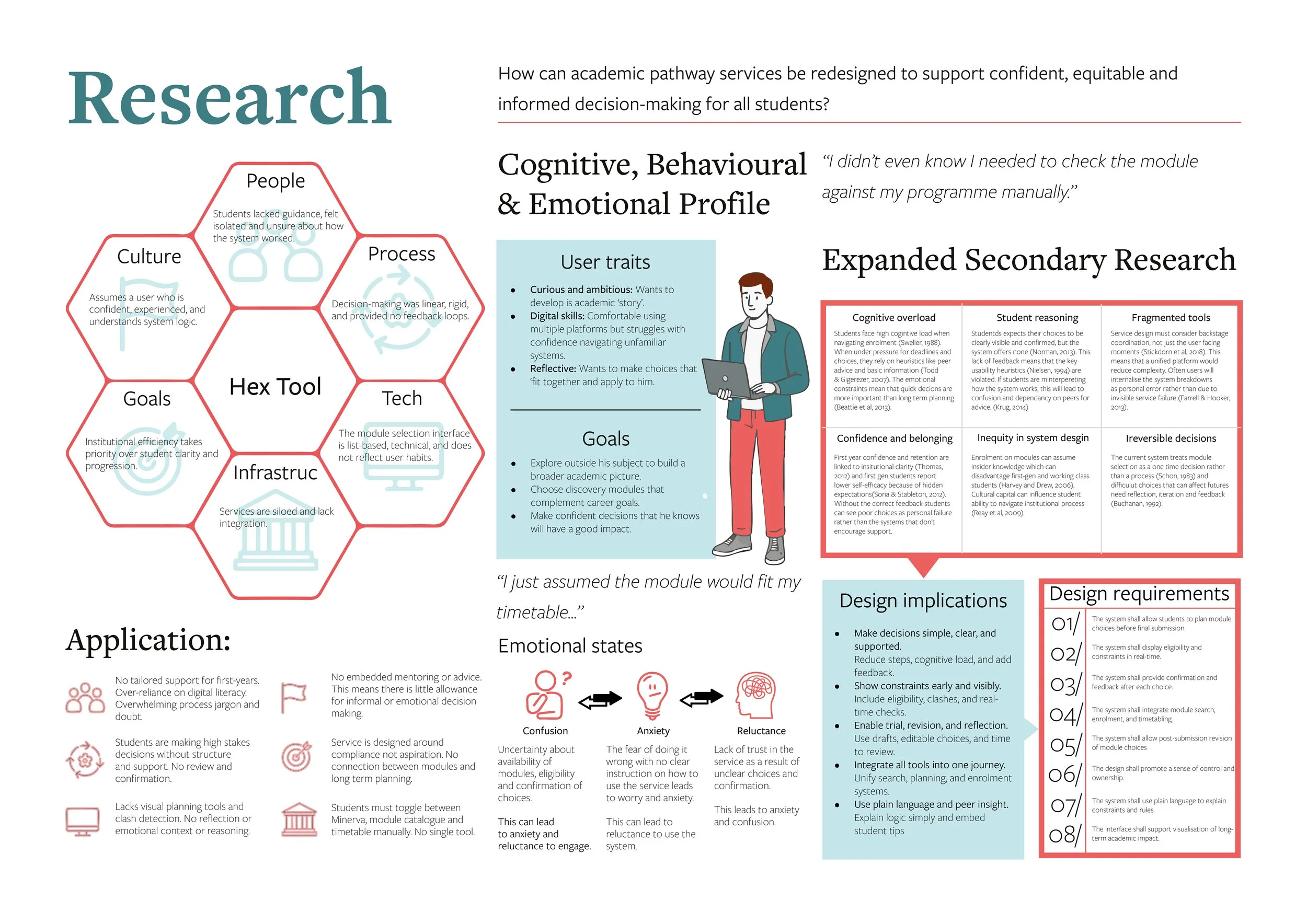Improving Academic Pathway Planning
What I investigated
I combined student interviews, a focused literature review, and service blueprinting to understand the current journey end to end. The evidence showed a process that is fragmented, complex, and emotionally stressful, especially for first year and first generation students who are expected to know unwritten rules.
What students told me
Students reported high cognitive load, uncertainty about module eligibility, and little feedback or opportunity to revise choices. Many described bouncing between Minerva, the module catalogue, and timetables, relying on guesswork and peer tips to fill the gaps.
Solution: Pathway Sketchpad
Using scenario mapping, user journeys, and iterative prototyping, the concept was shaped to target the system’s failure points directly. Students gain clear guidance, timely feedback, and the reassurance to make confident, well informed decisions about their academic futures.
Approach and outcome
A visual planning tool that reframes module selection as a guided, iterative process rather than a one off administrative task.
• Integrates enrolment, timetabling, and pathway planning in one place
• Checks clashes and prerequisites in real time with confidence feedback
• Supports drafting, reflection, and revision instead of single shot decisions
• Brings in peer insight and advisor input to build belonging and transparency



